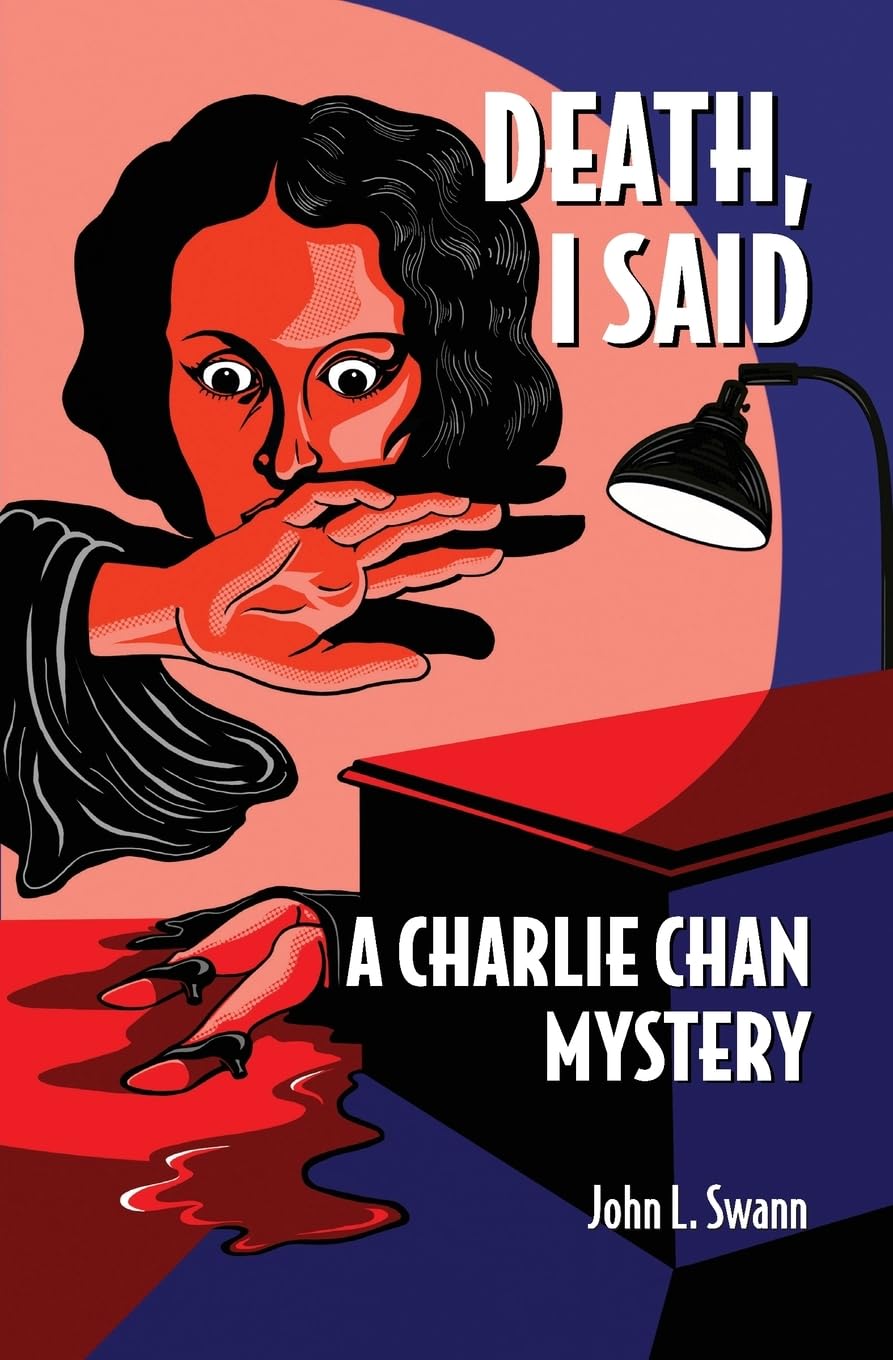Death, I Said: A Charlie Chan Pastiche
A Charlie Chan Mystery by John L. Swann
Review by Drew R. Thomas
Those of us who have read and enjoyed the Charlie Chan novels by Earl Derr Biggers lament the fact that there were only six books in the series. Biggers died of a heart attack after writing the final Chan book, Keeper of the Keys.
One such lover of the Chan books, John L. Swann, writes, “As I re-read the books. . . I came to regret that their author’s early death had ended the series. Recently, it occurred to me that maybe I could apply myself to telling the next Chan story, the one that Biggers might have written” (Swann, Death, I Said, Preface).
Mr. Swann continues, “I have tried to make this story a genuine representation of how Biggers depicted Chan in that period [the 1930s], but I have also omitted the stereotypes that cropped up in some of the books and films.”
The result is a thoroughly entertaining story that has the flavor of the original novels, tinged with the spirit of the Warner Oland and Sydney Toler movies. As I read this I, personally, felt like I was revisiting old friends and happy memories.
(This is a link through which I make a small commission if you buy. See here for more details.)
I always liked John Quincy Winterslip immensely, who Biggers introduced in his first Chan novel (The House Without a Key) and wondered whatever happened to him after he befriended and worked with Charlie on that case. Mr. Swann brings him back to work with Chan again in Death, I Said. (In fact, Winterslip brings this case to Charlie in this book!) To my great delight, Chan and Winterslip work together again.
Other characters who I missed from the original series include Barry Kirk and Kirk’s attorney J.V. Morrow (from Behind That Curtain). Charlie liked Barry Kirk so much that he named his youngest son after him.
Also included is Chan’s daughter, Rose. (Charlie’s sons and daughters are in the original books and films.)
In Death, I Said, Rose says to Charlie, “Dad, you have eleven kids! You still aren’t fluent in American slang?” This sentiment is true to the frustrations Chan often expressed in the books about his children using slang after he paid for their “expensive American education.”
The Biggers novels also include a number of passages where Chan says the Chinese are “a psychic people,” and this is carried into Death, I Said , as well.
The mystery itself is intriguing with a plausible, satisfying solution.
So I am happy to report that I felt I was reading an authentic Charlie Chan novel. I am heartened by Mr. Swann’s promise that Death, I Said, is “the first in a series of Charlie Chan mysteries that will coincide with the approaching centennial of the character’s 1925 debut,” (p.141). I look forward to reading these as they become available.
The bottom line: I recommend Death, I Said by John L. Swann with two thumbs up!
--Drew R. Thomas
John L. Swann, Death, I Said: A Charlie Chan Mystery (Utica, NY: Nicholas K. Burns Publishing, 2023)
Amazon and the Amazon logo are trademarks of Amazon.com, Inc. or its affiliates.
For more information about Charlie Chan, click on the links below to read articles.
The Novels by Earl Derr Biggers:
- The House Without a Key
- The Chinese Parrot
- Behind That Curtain
- The Black Camel
- Charlie Chan Carries On
- Keeper of the Keys
Charlie Chan Movies
- The Early Charlie Chan Films
- Enter Warner Oland: "Charlie Chan Carries On" and "Eran Trece"
- "The Black Camel" and Three Lost Charlie Chan Movies
- Charlie Chan's Aphorisms and Sayings
- Charlie Chan's Family as Described in the Books
- Charlie Chan's Family as Seen in the Movies
- Charlie Chan's Travels
Charlie Chan Pastiches
(This is a link through which I make a small commission if you buy. See here for more details.)

